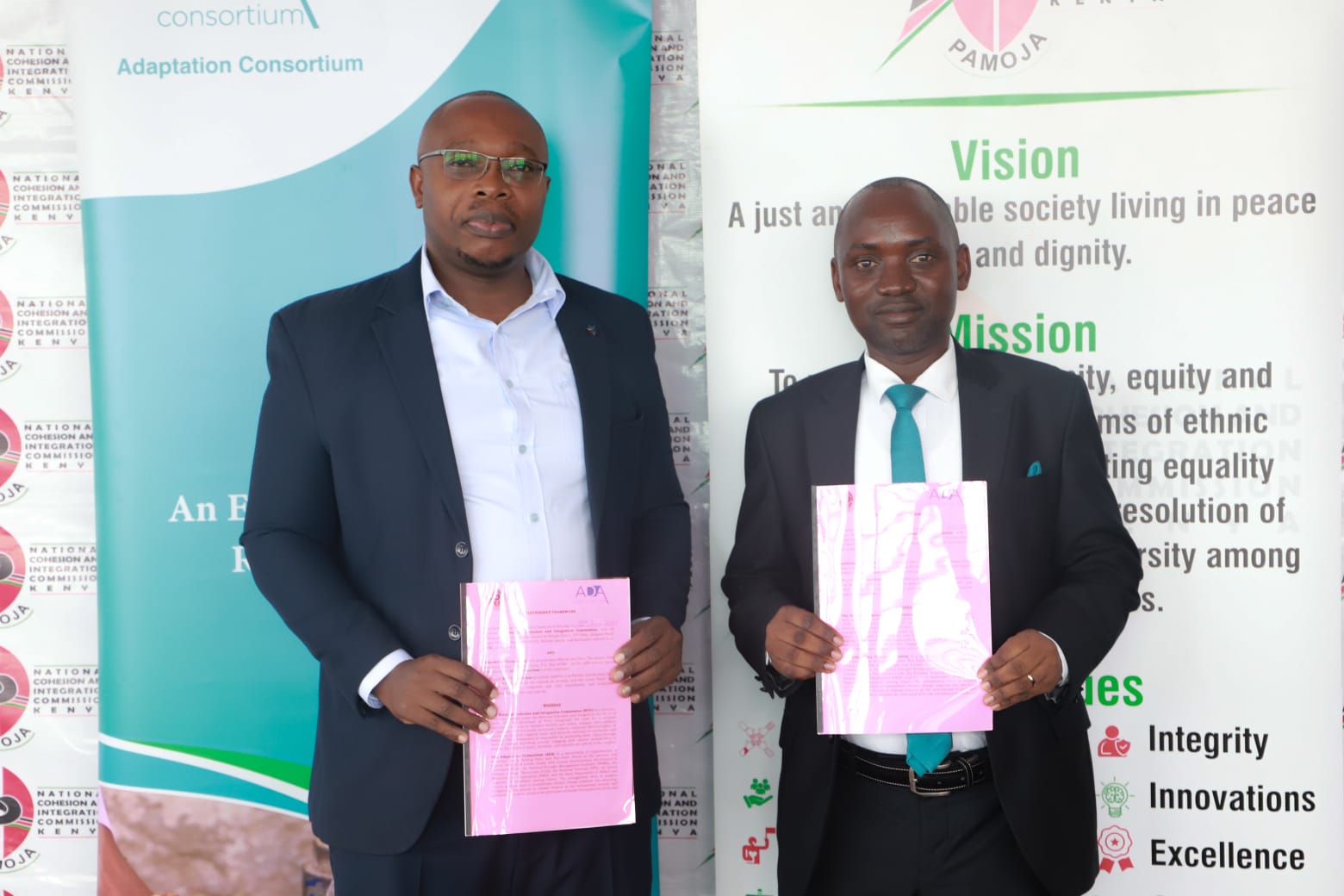Adaptation and Resilience

Created on Sep 13, 2024
Adaptation Consortium works with county governments to establish and strenthen legislation and legal frameworks for climate action through the County Climate Change Fund Mechanism. We support county governments to mainstream climate change into development planning and budgeting. Through capacity-building programs, technical assistance, and access to funding (enabled by CCCF), we continue to empower local stakeholders, including communities, to lead the design and implementation of adaptation initiatives and resilience building strategies. This empowers communities to meaningfully participate in decision making process and develop tailored solutions that address their unique climate challenges and meet their immediate adaptation needs.
ADA has implemented various projects and conducted research on adaptation interventions and resilience building for communities in Kenya:
1. Voices for Just Climate Action (VCA) Program
Other work done include:
- Development of adaptation indicators for adaptation for Monitoring and Evaluation.
- Political Economy of the Lake Region Economic Bloc (LREB)
- The Tracking Adaptation and Monitoring Development (TAMD) framework for CCCF

